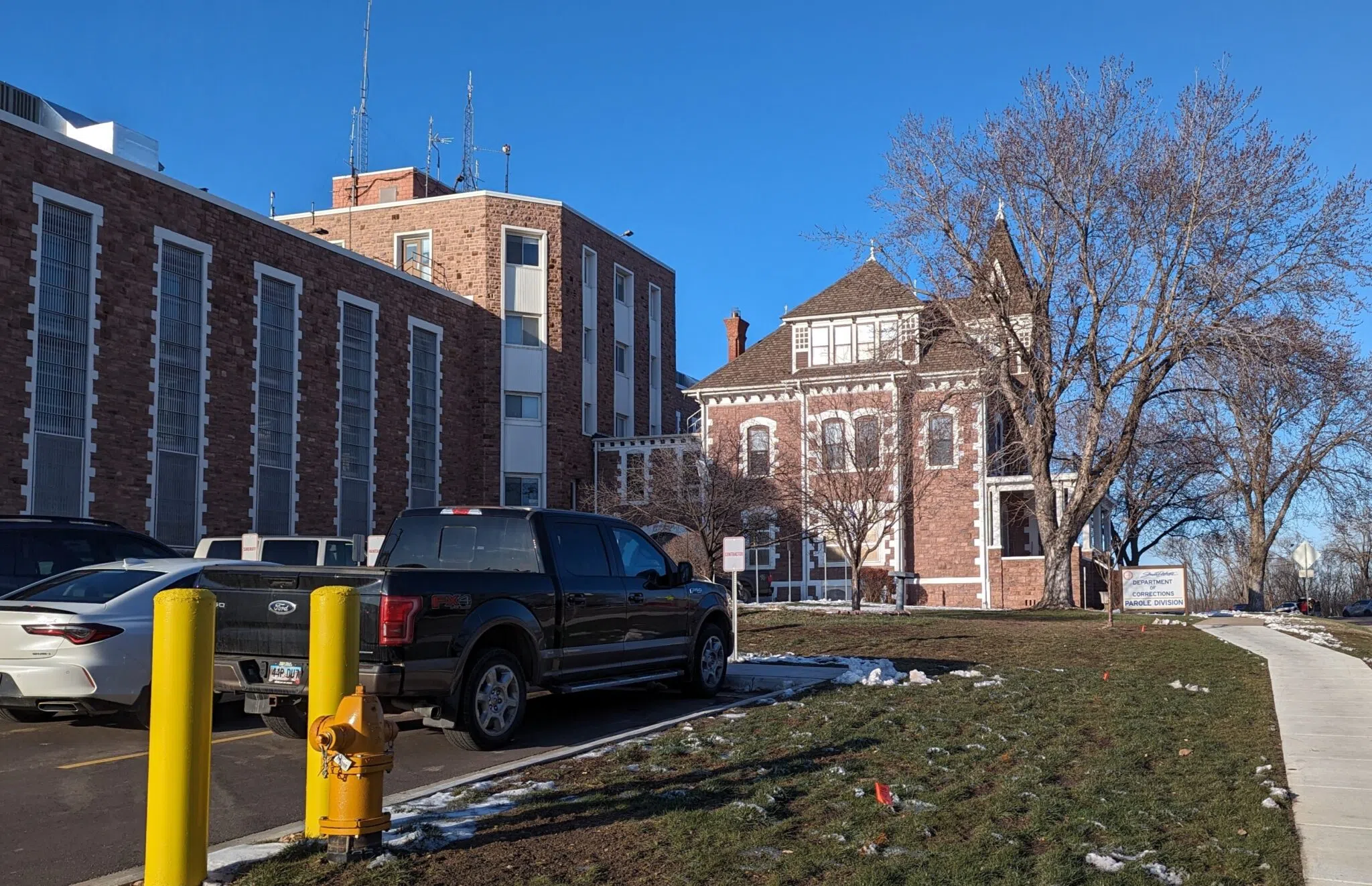
The South Dakota State Penitentiary, pictured on March 27, 2024. (John Hult/South Dakota Searchlight)
SIOUX FALLS, S.D. (SEARCHLIGHT) – The company that gave electronic tablets to South Dakota prison inmates under a contract with the state hid a 2020 data breach for nine months and then told only a fraction of affected users about it, according to a settlement filed in late February with the Federal Trade Commission.
The FTC’s decision and order in the data breach and fraud case against Global Tel Link (GTL) was issued on Feb. 27, two weeks before the South Dakota Department of Corrections suspended tablet-based phone calls and text messages for about 3,600 inmates. That suspension is thought to have contributed to multiple nights of unrest last month at the penitentiary in Sioux Falls, including an assault that injured an employee. Attorney General Marty Jackley has said inmates involved will be prosecuted “to the fullest extent of the law.”
South Dakota Department of Corrections spokesman Michael Winder said via email that GTL did not inform the agency of any data breach. South Dakota Division of Criminal Investigation spokesman Tony Mangan said the Attorney General’s Consumer Protection Division has yet to hear from the company about the number of South Dakotans affected by the breach, if any.
It’s one of several legal issues faced by GTL (rebranded as ViaPath Technologies in 2022), which works with nearly 2,000 facilities across the U.S.
For years, critics have called the Virginia-based company’s business practices exploitative and called on the federal government to step in and regulate rates – something the FTC has worked on for phone calls, most recently with an interim rate cap last reviewed in September.
The tablet communication shutdown in South Dakota wasn’t announced publicly until March 20, when the DOC said it was the result of an investigation. Gov. Kristi Noem said inmates were using the GTL-provided devices for “nefarious” activities. The DOC has not responded to questions about whether tablet security was part of the problem.
One week after the DOC posted a memo on tablet restrictions to its website, media gathered outside the penitentiary on the first night of disturbances could hear inmates inside shouting “we want phones.” The following night, inmates could be heard yelling “we have rights” and “water.”
Family members had been unable to visit inmates on “the Hill,” the area of the prison where the incidents took place, until this week.
A Monday memo from the DOC, posted to its visitation page, says that in-person visits will commence for those inmates on Saturdays, Sundays and the third Friday of each month.
Since last week, inmates have been allowed to make up to five phone calls a day with 20-minute time limits, using either tablets or wall phones. Electronic messaging remains suspended.
Inmates and their families have bristled at the restrictions on tablet-based communications, and some have complained about frozen inmate accounts with unusable balances.
Advocates who argue for rate caps and regulation of communications providers say the issues in South Dakota and across the nation come as prisons have become more isolated places. During the COVID-19 pandemic, for example, many prisons and jails stopped allowing in-person visits in favor of video visitation.
“At the end of the day, the fact that people are being exploited and still would rather have the technologies than not have them just goes to show how bad prison life is,” said Wanda Bertram of the Prison Policy Initiative, a prison reform nonprofit based in Massachusetts.




Comments